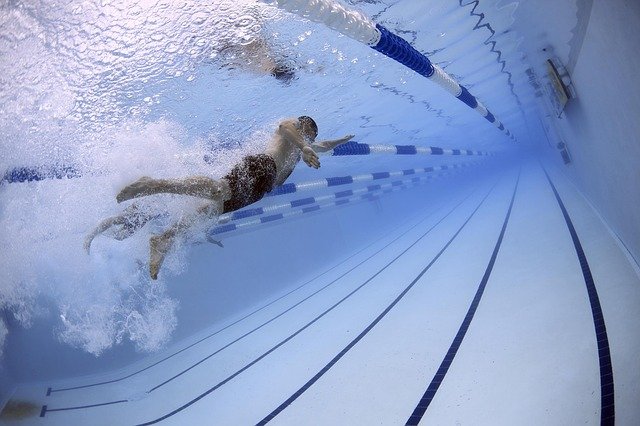
The 2020 Summer Olympics was due to take place in Tokyo, Japan, from 24 July to 9 August 2020. The international sporting event was, of course, postponed because of the worldwide COVID-19 pandemic. The COVID-19 disease was first detected in the Chinese city of Wuhan in December 2019, before being officially declared a pandemic by the World Health Organisation in March the following year.
The Olympics is the world’s biggest multi-sport event in terms of importance, history and worldwide attention. Countless people in many different countries watch the opening and closing ceremonies, as well as the sports themselves, while many also place bets on athletes or teams, hoping to make some money in the process. There are loads of online casinos, like vulkan vegas, that offer sports betting, as well as sites that focus entirely on betting, where you can place wagers on the Olympics.
When the pandemic got underway, it became clear that a huge event bringing people together from all over the world just wasn’t feasible. It was inevitable that the 2020 Olympics wouldn’t be able to take place in the year it was supposed to. In this article, we’ll have a look at what the state of the 2020 Olympics is as of early March 2021.
Plans for 2021
Officials are very confident that the 2020 Olympics can take place this year. The delayed event is confirmed to be taking place from 23 July and end on 8 August. Having said that, it remains to be seen whether things will be able to go ahead as originally intended.
Understandably, the Japanese government and the event’s organisers are very keen to promote health and safety. They want the event to be as COVID-free as possible so that it can run like normal. That being said, even though vaccines are being rolled out around the world, there may still be a need for certain restrictions to be in place. Some may be noticeable during broadcasts, while there may be other behind-the-scenes ones, too.
A key change that’s already been announced is that overseas visitors won’t be welcomed. In other words, the spectators filling the stadiums and other venues will all be from Japan. This is in place to reduce the spread of COVID-19. However, around a million foreigners are expected to visit Japan for the games, and the country is now set to miss out on a lot of income generated by these tourists.
It’s also been reported that, in line with guidelines, venues may not be filled; only a limited number of tickets for each one may be allowed to be sold. The opening and closing ceremonies are played to full stadiums, but this time round, they may have a much smaller live audience.
It’s worth pointing out that the 2020 Olympics aren’t going to be renamed the 2021 Olympics. This is to honour the fact that the events taking place this year are simply last year’s but delayed by a year; it’s also for the sake of branding, as promoting a 2021 Olympics could cause confusion.
Sports
A total of 33 sports (representing 50 disciplines) will be included in the 2020 Olympics. In total, 339 individual sporting events will be held. There will be six new sports:
• Baseball (last included in 2008)
• Softball (last included in 2008)
• Karate
• Sport climbing
• Surfing
• Skateboarding
These join the ‘core’ group of sports that have been represented at most, if not all, other events. Some of the newer sports, such as karate and skateboarding, are added to the roster as part of an effort to shine the light on sports that are popular in the host nation. Other sports that are fairly new are golf and rugby sevens, both of which were introduced at the 2016 Olympics.
All athletes who have qualified for the 2020 Olympics will be able to take part in this year’s games – nothing regarding the line-up of athletes has changed.
Opening and Closing Ceremonies
The opening and closing ceremonies are key parts of the Olympics. As mentioned above, this year’s proceedings will likely not play to full stadiums. Preparations for them were well underway when the 2020 Olympics got postponed, though there’s a good chance that the original plans will have to be adjusted to fit in with current rules and regulations.
Even if there are restrictions of some kind in place, there’s no doubt that both ceremonies will still be amazing spectacles to watch. They may even be configured to reflect what the world’s been going through, or they may bypass it and focus on the core themes of the Olympics: unity and sporting excellence. Even so, they’ll be worth the wait.
Other Games
The 2020 Paralympics was also postponed and is set to go ahead this year, with the dates 24 August to 5 September announced. The fact that both of 2020’s events have been postponed by a year won’t affect future events. Therefore, the 2024 Olympics, which will be held in Paris, will still be going ahead in that year.
Key Facts and Figures
Below are some key facts and figures about the 2020 Olympics that reflect just how big of an event it is:

Hopefully, the 2020 Olympics will indeed go ahead later this year and will be the event that we’ve been longing for since last year. Even though there are still quite a months to go and things can change, people seem to be optimistic that this year’s event will still be able to go ahead, albeit with some possible restrictions and changes.
When the opening ceremony starts, billions of people from all over the world will be breathing sighs of relief that yet another thing cancelled by the pandemic has come back.
Tags: online gambling


